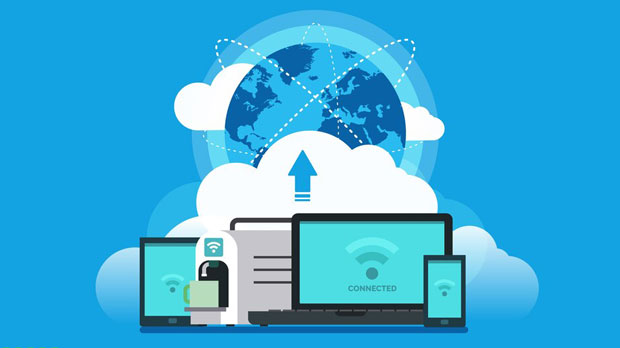A Proxy Server Static IP refers to a dedicated internet address that remains consistent over time, offering users the ability to maintain a stable and uninterrupted connection while accessing web services. This feature is essential for businesses or individuals who require secure and consistent internet usage, often for tasks like data scraping, managing multiple accounts, or bypassing geo-restrictions. In this article, we will explore the factors that influence the pricing of Proxy Server Static IP services and provide a comprehensive overview of what customers should expect when considering this type of proxy service. Understanding Proxy Server Static IPA Proxy Server Static IP is a unique and unchanging IP address that routes traffic from a client device through a proxy server. Unlike dynamic IP addresses, which change over time, static IPs provide more control and consistency. The major benefits of having a static IP include enhanced security, better performance for certain applications, and the ability to maintain access to services without being blocked due to frequent IP address changes. Factors Affecting the Price of Proxy Server Static IPThe price of a Proxy Server Static IP can vary based on several factors that customers need to consider before purchasing. These factors include the quality of the proxy provider, the geographical location of the proxy server, and the level of security offered. Let’s break down these factors: 1. Provider Reputation and Service QualityThe quality of the proxy service significantly impacts the price. High-quality proxies with good customer support, uptime guarantees, and fast response times are typically priced higher. Established proxy providers often charge more for their reliable services, as they offer extra features such as advanced security protocols, fast speeds, and access to a wide range of IP addresses. 2. Geographic LocationThe location of the Proxy Server Static IP can influence its price. For instance, proxies located in countries with strict internet regulations or high demand for anonymity (such as the United States, the United Kingdom, or countries in the European Union) tend to be more expensive. Additionally, if you need proxies from specific regions or countries for geo-targeting purposes, the cost may increase depending on the location's popularity and demand. 3. Security FeaturesProxy services with advanced security features, such as SSL encryption, IP whitelisting, and other protections, can command a higher price. Static ip proxies are often more secure than dynamic ones because they don’t change frequently, reducing the chances of being flagged as suspicious by websites. 4. Bandwidth and Speed RequirementsThe speed and bandwidth provided by the proxy service will also affect its price. If you require high-speed connections or large amounts of data transfer (for example, for large-scale web scraping or handling multiple accounts), you may need to opt for a premium service that offers more bandwidth and faster speeds. This will typically result in a higher price tag. Typical Price Ranges for Proxy Server Static IPThe prices for Proxy Server Static IPs can range widely, depending on the features and services you choose. On average, users can expect the following price ranges: Low-Cost Static IP ProxiesFor users who don’t require high-end features or large amounts of bandwidth, low-cost static IP proxies can start at around $10 to $20 per month. These services often offer basic features, including one or two static IP addresses from a limited geographic location. Mid-Range Static IP ProxiesMid-range static IP proxies, which offer a better balance between cost and features, can range from $30 to $80 per month. These proxies typically include more locations, better performance, and some additional security features like SSL encryption or enhanced privacy protections. High-End Static IP ProxiesFor businesses or users who need high-performance proxies with multiple IP addresses, various geographical locations, advanced security features, and high-speed connections, the cost can go as high as $100 to $200 per month or more. These services often offer dedicated support, custom configurations, and guaranteed uptime. What to Look for When Choosing a Proxy Server Static IP ServiceWhen choosing a Proxy Server Static IP service, it’s important to evaluate several aspects to ensure you are getting good value for your money. Here are some key points to consider: 1. Number of IPs and LocationsIf you need proxies from multiple countries or cities, ensure the service provides a wide range of locations. Some providers offer global networks, allowing you to select proxies from various regions for different purposes. Make sure the number of static IPs offered meets your needs. 2. Performance and SpeedSpeed is a crucial factor when selecting a proxy service. Whether you’re using proxies for web scraping, gaming, or managing online accounts, you’ll want to choose a provider that offers high-speed connections with minimal latency. Look for services that offer high bandwidth and ensure fast performance. 3. Security and Privacy FeaturesEnsure that the provider offers secure connections with features like SSL encryption, IP authentication, and anti-fingerprinting measures. Privacy is essential when using proxies for sensitive tasks like bypassing geo-blocks or handling confidential data. 4. Customer SupportReliable customer support is another important factor when choosing a proxy service. Opt for a provider that offers 24/7 customer service and quick response times in case you encounter any issues with your static IP proxies. Conclusion: Is it Worth the Cost?The price of a Proxy Server Static IP depends largely on the specific requirements of the user and the quality of the service. For individuals and businesses that need secure, reliable, and consistent internet access, the cost of a static ip proxy can be justified by the benefits of enhanced security, better performance, and greater control. However, before purchasing, it’s important to evaluate the features offered by the provider, such as the number of IP addresses, geographical locations, and additional security measures, to ensure that you are getting the most value for your investment.Ultimately, the choice of a Proxy Server Static IP should be based on your specific needs, whether it's for business purposes, data scraping, or ensuring anonymity while browsing. Be sure to weigh the options available in the market and consider factors like speed, security, and reliability before making a decision.
Aug 18, 2025



































































